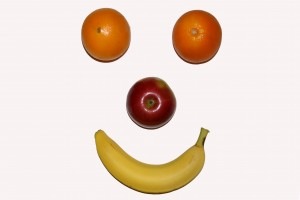Fructose: A Simple Sugar
Fruit sugar, or fructose, is a simple sugar that your body metabolizes quickly and easily. Fructose, has few, if any, advantages over sucrose, the kind of sugar in candy.
Moderate fruit intake is recommended as part of a healthy diet. The simple sugars, like fructose, found in fruit are not a problem for active and healthy people. But, if you have diabetes or prediabetes, too much fruit could throw your blood sugar levels out of whack.
Fruit juice is often made from fruit concentrate with added refined sugar, so too much fruit juice can be a bad thing. FYI: there really isn’t a big nutritional difference if your jam is sweetened with “sugar” or “fruit juice sweetener.” They are both sugar.
A Good Idea
Having fruit in your diet is a good idea for a bunch of reasons. It tastes good and most of it has a substantial amount of fiber — which helps to reduce the risk of some diseases. Fruit is also a good source of vitamins and minerals. A well rounded diet with plenty of fruit, vegetables, and some lean protein is a good bet.
It’s also pretty cool that a lot of fruit comes in it’s own wrapper and single serving package. Think oranges, clementines, tangerines, apples, pears, and bananas to name a few. They’re really grab and go. And berries – so high in antioxidants. Delicious, too. Watermelon is 92% water by weight, filled with vitamin C, and a necessary part of so many barbecues and beach parties.
All sugar adds calories but there are certainly a lot of reasons to choose fruit and its sugar over the nutritionally empty sugared sweet stuff like candy and soda.
The fiber and water in fruit help you to feel full. The fruit is packed with vitamins and minerals. Because of its fiber, fruit takes longer to digest than processed sweets made with refined sugar. And, it doesn’t create a spike in your blood sugar — which is then followed by a steep drop that makes you hungry all over again.
Sugar And Calories In Popular Fruit
Some examples:
|

